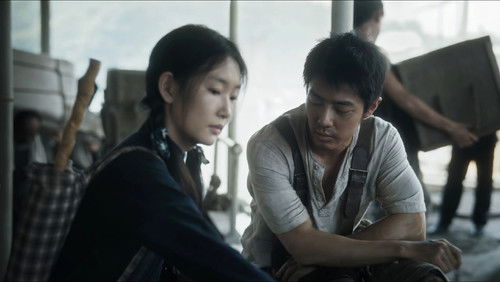La tía Tula (1964)
8KLa tía Tula (1964). 1h 49m
“La Tía Tula (English: Aunt Tula) is a 1964 film Spanish film magnificently directed by Miguel Picazo . Tula , a 31-year-old unmarried woman (Aurora Bautista) , whose sister has just died , decides to care her children and she undertakes a new life and to bring her brother-in-law Ramiro (Carlos Estrada) , a bank employee into her home . As Tula , who has a spinster status , supports his brother-in-law , forgetting that she is a woman . As she takes over the management of their lives , two children and widower . She acts as a wife mother figure , but does not accept the sexual commitments or maternal responsibilities of her new role . Meanwhile , Ramiro is attracted to Tula as she dotes on his children , but she spurns his affections . She is also critical of his interest in other women . As Tulau0026#39;s priest advises her to marry Ramiro . When she is ready to agree , she discovers an unexpected surprise . u003cbr/u003eu003cbr/u003eThe film is a thought-provoking and brooding social portrayal based on the Miguel De Unamuno novella of the same title . Highly acclaimed , the film is widely considered a classic of Spanish cinema . This is an interesting film , dealing with the lives of the people in a repressed society and its consequences and after Spanish civil war , during Francisco Franco period , usual themes in Spanish Film history ; including dramatic scenes when Ramirou0026#39;s sexual frustration grows and for obtaining sexual favors he attempts to rape Tula . Aurora Bautista gives a top-drawer acting as religious Aunt Tula , a woman being single and repressed who believes that she has to help her brother-in-law and gradually usurps the privileges of Ramiro and his children . Bautista was doubtlessly one of the most famous Spanish movie star of the fifties and sixties . She starred box-office titles as ¨Agustina De Aragon¨, ¨Pequeñeces¨ , ¨La Gata¨, ¨Teresa De Jesus¨, though she gave excessively theatrical acting . However , here she is top-notch in her best performance was ever given . Carlos Estrada is very good as the frustrated widower who wishes eagerly Tula , being rejected , he is then paying court to other women . Support cast is frankly extraordinary , such as : Maria Enriqueta Caballeira as Juanita , Laly Soldevila as Amalita , Irene Gutierrez Caba as Herminia , Montserrat Julió , Margarita Calahorra and José Maria Prada . Evocative cinematography in black and white by Juán Julio Baena . Atmospheric and appropriate musical score by Antonio Pérez Olea . The film was selected as the Spanish entry for the Best Foreign Language Film at the 38th Academy Awards, but was not accepted as a nominee. It won several prizes as Cinema Writers Circle Awards, Spain 1965 , won CEC Award Best Film , Best Supporting Actor : José María Prada , Best Supporting Actress : Enriqueta Carballeira , Best Director : Miguel Picazo ; it won National Board of Review , USA 1966 : NBR Award Top Foreign Films ; it won San Sebastián International Film Festival 1964 , Best Spanish Language Film and won Prize San Sebastián Best Director Miguel Picazo . And National Syndicate of Spectacle, Spain 1964 it won Prize of the National Syndicate of Spectacle Best Female Star : Aurora Bautista and Sant Jordi Awards 1965 : Best Film , Miguel Picazo , and Best Performance in a Spanish Film , Aurora Bautista . u003cbr/u003eu003cbr/u003eThe motion picture was masterfully directed by Miguel Picazo who was born 1927 in Cazorla, Jaén and died in 2016 . He was a director and actor , especially known for ¨La Tía Tula¨ (1964), ¨Extramuros¨ (1985) and ¨Oscuros Sueños Agosto¨ (1968). He even directed to Timothy Dalton in ¨El Hombre Que Supo Amar¨ (1978) . And Picazo made a lot of of TV programmes as ¨Novela¨, ¨Los Libros¨, ¨Cronicas De Un Pueblo¨ and ¨Cuentos Y Leyendas¨ .”









